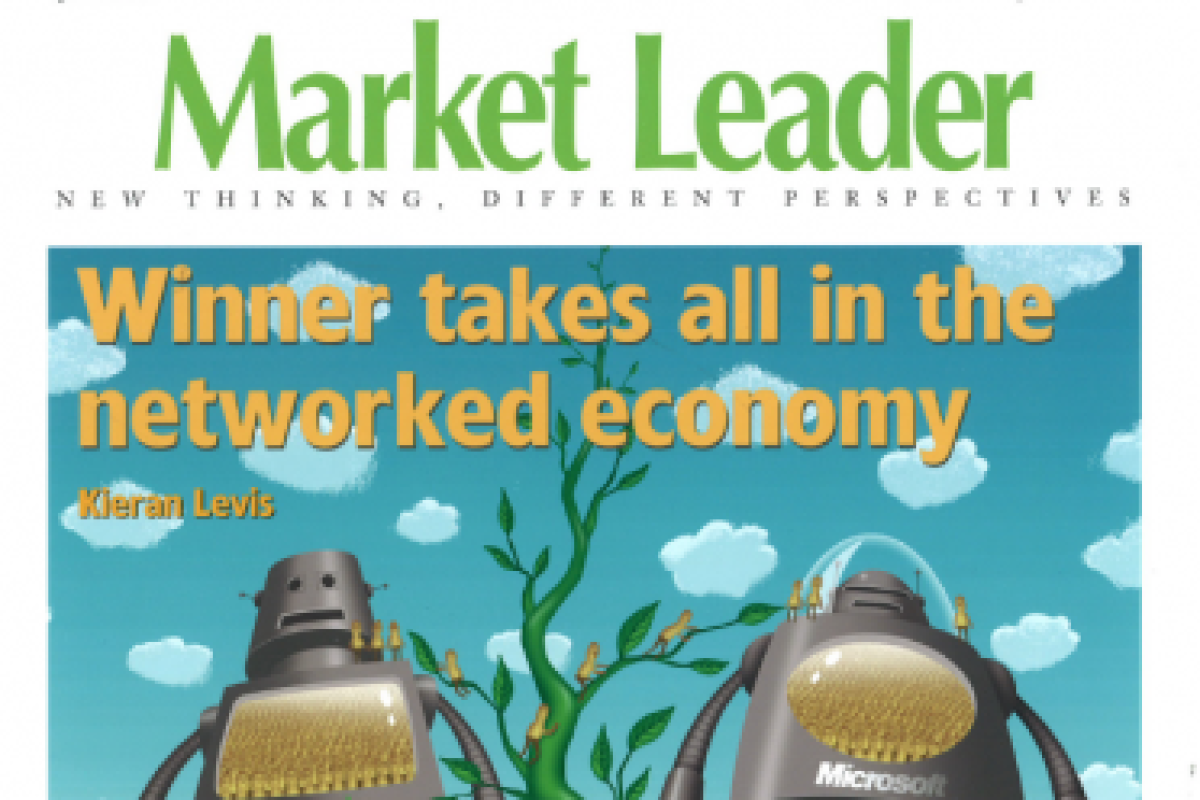A few of us were discussing the newly liberalised product placement regulations, and began musing on the ethics of negative product placement – whereby you would pay broadcasters to feature your competitors' products being used by deeply unattractive characters. So that next raid on a crack den in The Bill might show an array of P&G cleaning products on a shelf.
Interestingly enough, only days later a real instance of this arose. In the recent film The Invention of Lying, set in a world where everyone can only tell the truth, a bus drives past carrying the slogan, 'Pepsi: for when you can't get Coke.'
I suspect this was the work of a scriptwriter, not a copywriter. It is rather wonderful in its way. Yet if it were a piece of product placement it would be ethically debatable.
In my various talks I am fond of showing a slide which depicts a Buenos Aires street vendor's stall. It advertises two drinks: a glass of orange juice is priced at 5 pesos, while jugo de naranja is a mere 4 pesos. The Spanish speakers among you will have already spotted that the two drinks are one and the same: the vendor is merely practising linguistic price discrimination – in this case profit(eer)ing from any passing tourists who don't speak Spanish.
Is this kind of practice unethical? A classical economist may say that since no one is compelled to pay 5 pesos for an orange juice, any non-Hispanophone who does is simply deciding that a juice is worth more to them than 5 pesos, so what's the problem? An information economist may respond that we mostly outsource our notions of value to the wider marketplace, and that this system is hence a form of deception.
Certainly this debate, and many like it, will heat up in coming years. Behavioural targeting techniques online will make it possible to tailor prices to match each individual prospect's likely means and desire. Some US baseball stadia already practise real-time pricing, where the price for everything – from food to souvenirs – is varied to reflect everything from the climate, the size of the crowd and the day of the week.
One US snack food company has supposedly introduced a form of lunar targeting, selling larger, pricier crisp bags in supermarkets at the beginning of the month (after pay day) and replacing them with smaller units towards the end. All these things are highly open to debate. And, as marketers, we should once again engage in ethical discussion – and be ready to lose the argument to the public once in a while.
Oddly, I am delighted by this prospect. If there is one thing more dishonest than dodgy marketing, it is the pretence that marketing raises no ethical concerns. The truth is that marketing raises enormous ethical questions every day – at least it does if you are doing it right.
If this were not the case, the only possible explanations are either that you believe marketers are too ineffectual to make any difference, or you believe that marketing activities only affect people at the level of conscious argument.
Neither of these possibilities appeals to me. I would rather be thought of as evil than useless.
Marketing techniques can be used to achieve all manner of dubious ends. Hitler devotes a few pages in Mein Kampf to 'what makes an effective poster'. His only salaried job was a few weeks spent working as an art director on a campaign for an anti-perspirant. Goebbels shows a keen understanding of Dr Robert Heath's low-involvement processing when he says that 'the most effective form of persuasion is when you are not aware you are being persuaded'.
I am much keener that we should accept the vast moral implications of what we all do and debate them openly rather than fudge the issue.
We made this mistake with the frankly ludicrous claim that advertising had no effect on smoking. While I can accept that the purpose of tobacco advertising was not to encourage people to smoke, I find it astounding that anyone could barefacedly suggest that cigarette posters seen everywhere did not serve to normalise the habit.
If you want to see the long-term effects of dodging ethical questions, witness the effects of the 'shareholder value movement'. This singlemetric movement suggested that the sole responsibility of a manager was to maximise short-term returns by any legal means available. The effect over time was a slow erosion of trust.
As Dr Johnson wrote, 'There is a kind of mercantile speculation, which ascribes every action to interest, and considers interest as only another name for pecuniary advantage. But the boundless variety of human affections is not to be thus easily circumscribed.'
ABOUT THE AUTHOR
Rory Sutherland is executive creative director and vice chairman of OgilvyOne London and Ogilvy Group UK.
